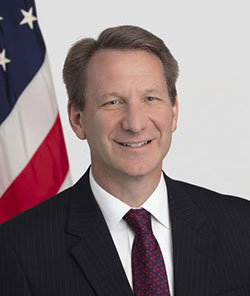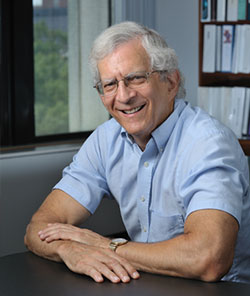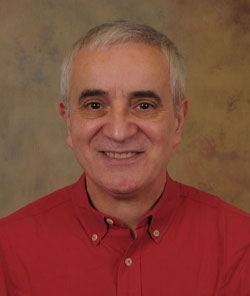Featured Speakers
Director, National Cancer Institute (NCI)
 |
Norman E. “Ned” Sharpless, M.D., was officially sworn in as the 15th director of the National Cancer Institute (NCI) on October 17, 2017. Prior to his appointment, Dr. Sharpless served as the director of the Lineberger (“line burger”) Comprehensive Cancer Center at the University of North Carolina (UNC). Dr. Sharpless was a Morehead Scholar at UNC–Chapel Hill and received his undergraduate degree in mathematics. He went on to pursue his medical degree from the UNC School of Medicine, graduating with honors and distinction in 1993. He then completed his internal medicine residency at the Massachusetts General Hospital and a hematology/oncology fellowship at Dana-Farber/Partners Cancer Care, both of Harvard Medical School in Boston. After 2 years on the faculty at Harvard Medical School, he joined the faculty of the UNC School of Medicine in the Departments of Medicine and Genetics in 2002. He became the Wellcome Professor of Cancer Research at UNC in 2012. Dr. Sharpless is a member of the Association of American Physicians and the American Society for Clinical Investigation, and is a Fellow of the Academy of the American Association of Cancer Research. He has authored more than 160 original scientific papers, reviews, and book chapters, and is an inventor on 10 patents. He cofounded two clinical-stage biotechnology companies: G1 Therapeutics and Sapere Bio (formerly HealthSpan Diagnostics). He served as Acting Commissioner for Food and Drugs at the US FDA for seven months in 2019, before returning to the NCI Directorship. |
Director, National Institute on Aging (NIA), National Institutes of Health (NIH)
 |
Richard J. Hodes, M.D., is the Director of the National Institute on Aging (NIA) at the National Institutes of Health (NIH). Dr. Hodes, a leading researcher in the field of immunology, was named to head the NIA in 1993. The NIA leads the Federal effort supporting and conducting research on the biological, clinical, behavioral and social aspects of aging. Dr. Hodes has devoted his tenure to the development of a strong, diverse, and balanced research program. This has led to new and innovative ways to conduct research, share data, and translate findings into practice. Basic biologic research is examining genetic and other factors influencing aging, how they affect longevity, and the development of age-related diseases. Research in geriatrics is uncovering new ways to combat frailty and improve function with age. Behavioral and social research is deepening understanding of the individual behaviors and societal decisions that affect well-being. Dr. Hodes also directs the Federal effort to find effective ways to treat or prevent Alzheimer’s disease, as the NIA is the lead NIH institute for this mission. Cutting-edge research conducted and supported by the NIA, often in collaboration across institutes at the NIH, has helped to revolutionize the way we think about Alzheimer’s disease and related dementias. Studies in genetics, basic mechanisms, imaging, and biomarkers have spurred the development of potential therapies aimed at a variety of targets and the testing of interventions at the earliest signs of disease. Dr. Hodes’ research laboratory in the National Cancer Institute focuses on the cellular and molecular mechanisms that regulate the immune response. Additional background is available at the lab's website. A graduate of Yale University, Dr. Hodes received his M.D. from Harvard Medical School. He is a Diplomate of the American Board of Internal Medicine, a member of The Dana Alliance for Brain Initiatives, a Fellow of the American Association for the Advancement of Science, and a member of the National Academy of Medicine at the National Academies of Sciences, Engineering and Medicine. |
Scientific Director of National Institute on Aging (NIA), National Institutes of Health (NIH)
 |
Dr. Luigi Ferrucci is a geriatrician and an epidemiologist who conducts research on the causal pathways leading to progressive physical and cognitive decline in older persons. He has made major contributions in the design of many epidemiological studies conducted in the U.S. and in Europe. Dr. Ferrucci received a Medical Degree and Board Certification in 1980, Board Certification in Geriatrics in 1982 and Ph.D. in Biology and Pathophysiology of Aging in 1998 at the University of Florence, Italy. Between 1985 and 2002 he was Chief of Geriatric Rehabilitation at the Department of Geriatric Medicine and Director of the Laboratory of Clinical Epidemiology at the Italian National Institute of Aging. In September 2002, he became the Chief of the Longitudinal Studies Section at NIA. From 2002 to 2014 he was the Director of the Baltimore Longitudinal Study on Aging. Dr. Ferrucci is currently the Scientific Director of NIA, since May 2011. |
